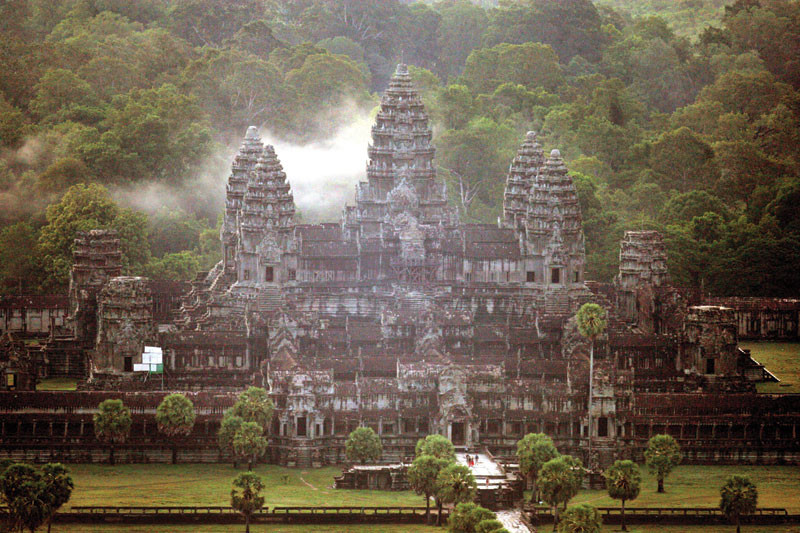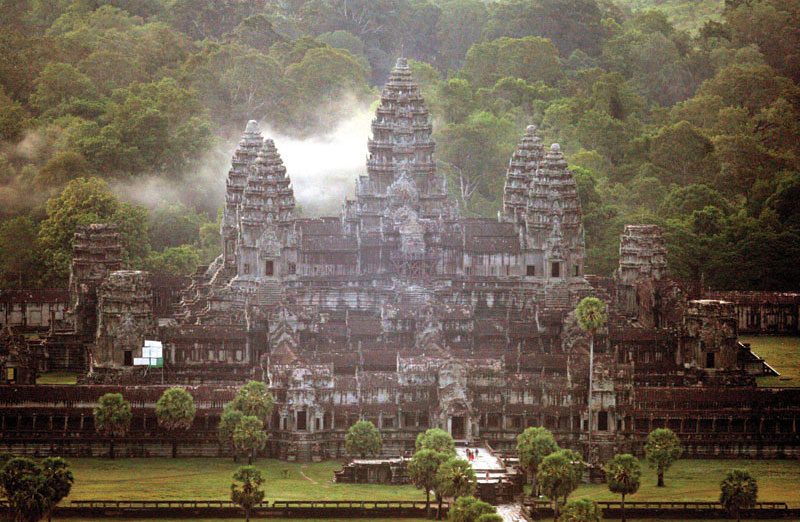International experts touring Angkor Archaeological Park shared a troubling observation with their Cambodian counterparts this week: The famed towers of Angkor Wat need more attention to counter the effects of age, weather and pollution.
Although Angkor Wat—the biggest and most visited monument in the park—is constantly under restoration, the experts recommended additional care for the towers’ stones, said Chau Sun Kerya, a spokeswoman for Apsara Authority, the government agency managing the park in Siem Reap province.

“As in the case of any natural material, stone ages,” she said. “So we must put more emphasis on those structures, which may look solid but whose stones are constantly assailed by the environment.”
Specialists in fields as varied as aquatic plants, tourism management and Sanskrit are in Siem Reap City this week to attend the technical meeting of the International Coordinating Committee of Angkor (ICC) today and tomorrow. Held annually, the conference brings together all of the international and Cambodian teams working in Angkor Park, whether on monument restoration or forest management.
Following Angkor’s addition to the Unesco World Heritage List in 1992, the ICC was created to bring in expertise and funding to restore the site that had suffered from neglect—in addition to being mined—during the country’s decades of war and conflict.
Co-presided by France and Japan with support from Unesco, the committee oversees all aspects of the 401-square-km park in cooperation with Apsara, headed by Deputy Prime Minister Sok An.
Since Angkor started generating millions of dollars in annual tourism revenues, the ICC has become progressively more formal at both its annual meeting for ambassadors of countries funding projects at Angkor and its yearly technical meeting.
Procedures between Apsara and foreign researchers have become more rigid, several foreign archaeologists reported.
A “code of conduct” for researchers, prepared by Tan Boun Suy, Apsara deputy director general, and Helen Jarvis, a long-time adviser to Mr. Sok An, will be presented at the meeting tomorrow. Ms. Sun Kerya said the new rules would merely standardize current procedures.




